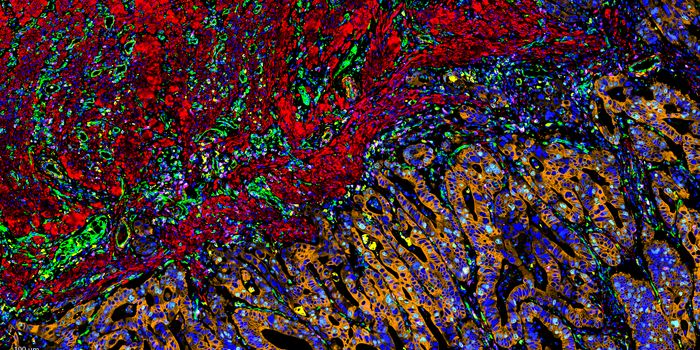Disrupted Waste Clearance in the Brain may Cause Neurodegeneration
Damaged proteins that have accumulated and formed tangles in the brain have been linked to neurodegenerative diseases like Alzheimer’s and Parkinson’s. Treatments that aim to eliminate those disruptive protein clumps have not been very good at relieving symptoms of dementia and disease, however. Researchers may have found a better approach, however. In new work reported in Nature, scientists showed that immune cells that are found between cerebrospinal fluid and brain tissue, called parenchymal border macrophages (PBMs) can affect how waste material is removed from the brain, which may influence neurodegeneration.
The researchers found that PBMs help control the motion of blood arteries that regulate the flow of cerebrospinal fluid in the brain; this flow helps eliminate waste products. When these macrophages were depleted or impaired, debris built up in the brain. This study showed that PBMs are disrupted in old mice, as well as in mouse models of Alzheimer's. PBMs were also found to be impaired in Alzheimer's patients. In humans, the loss of PBMs appears to start around age 50. As people age, their immune cells become less efficient at consuming and removing waste products, and the regulation of fluid flow is disrupted.
When a compound that stimulates PBMs was applied to a mouse model, waste clearance in the brain was improved. The study suggested that it may be possible to treat neurodegenerative diseases by making waste removal in the brain more efficient.
The death of neurons has been a focus of Alzheimer's research for many years, but other cells could be involved, including immune cells that are on the periphery of the brain, noted senior study author Jonathan Kipnis, PhD, a Professor at Washington University School of Medicine in St. Louis.
“It doesn’t look likely that we will be able to revive dead or dying neurons, but the immune cells that sit on the borders of the brain are a feasible target for treating age-related brain diseases. They’re more accessible, and could be drugged or replaced,” said Kipnis.
Impaired cerebrospinal fluid flow has been observed in different neurodegenerative diseases including Alzheimer’s, multiple sclerosis, Parkinson’s, and stroke, noted lead study author and postdoctoral researcher Antoine Drieu, PhD. “If we can restore fluid flow through the brain just by boosting these macrophages, maybe we can slow the progression of these diseases. It’s a dream, but who knows? It might work.”
It may be possible to target PBMs for treatment, and relieve some of the disruptions in waste clearance that come with aging and neurodegenerative disease, added Kipnis. The researchers are exploring different approaches that might be used to rejuvenate or replace PBMs.
"I hope that one day we will be able to slow down or delay the development of age-related brain diseases with this approach,” said Kipnis.
Sources: Washington University in St. Louis, Nature









